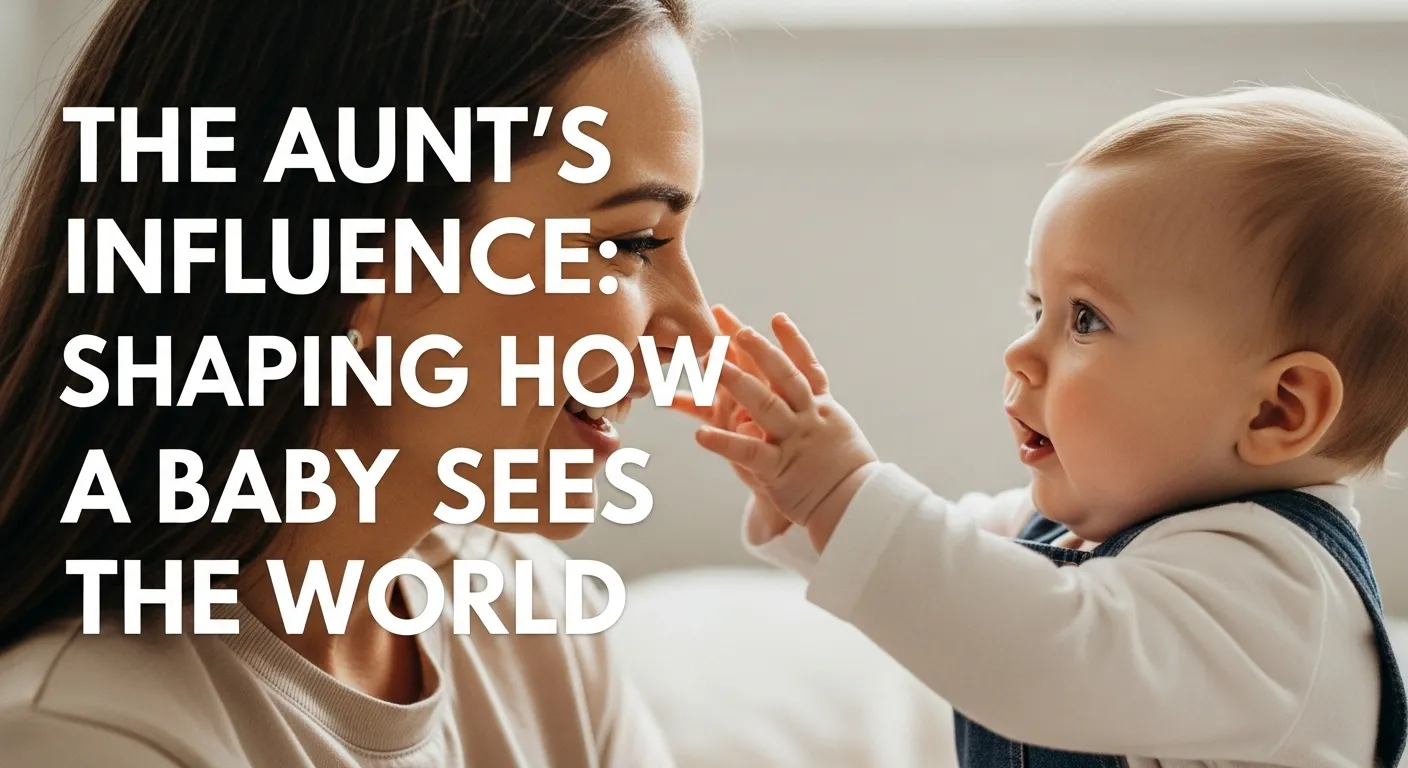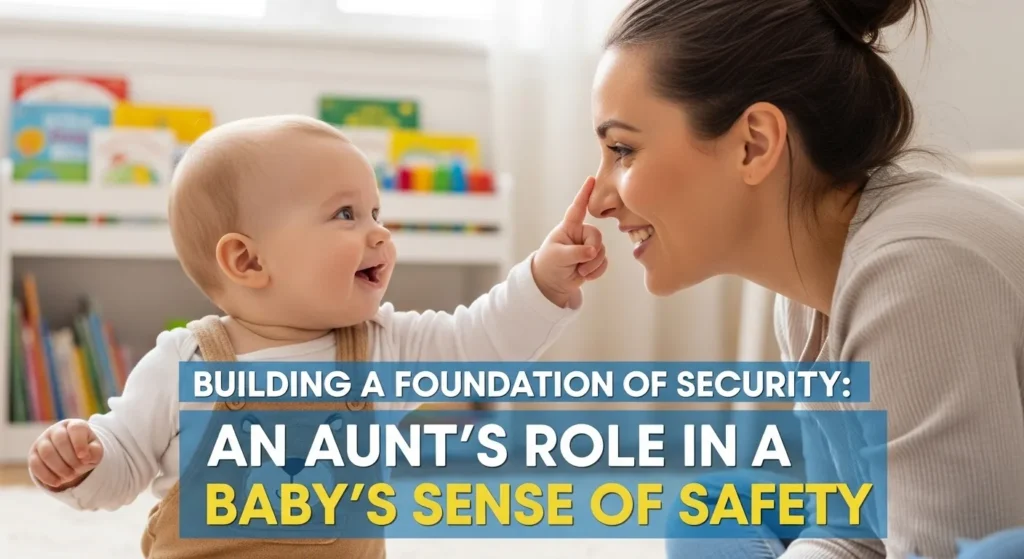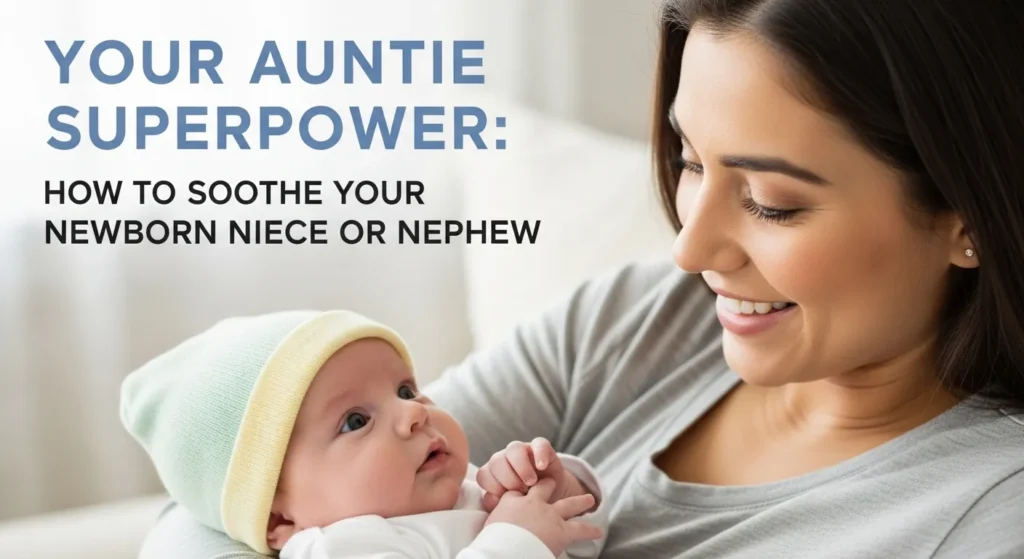
Welcome to the wonderful journey of aunthood! When you first hold your new niece or nephew, you’re filled with an incredible mix of joy and love. But you might also wonder, “In the middle of all the chaos of a new baby, how much of a difference do I really make?”
The answer is: a huge one.
You are one of the very first people this child will ever know, and your presence does more than just help out the parents. It actively shapes how that tiny baby learns to see the world. Let’s break down exactly how your special bond creates such a powerful, positive impact.
How does being a loving aunt actually help a baby?
Direct Answer: Your consistent love and attention help a baby build their fundamental sense of safety and trust. You are one of the first people to show them that the world is a kind place, which is the most important lesson they will learn in their entire first year.
Evidence: A baby’s brain is wired for connection. From day one, they are in a constant state of learning, and their classroom is the circle of people around them. While parents are the center of their world, you expand that circle. You show them that love and care can come from more than one or two people, creating a wider, stronger foundation of security.
As the first chapter of my upcoming book Auntie of the Year puts it:
Your love, presence, and care help shape how they feel about the world.
This isn’t just a nice sentiment; it’s a developmental cornerstone. When you show up with gentle attention, you are actively teaching them to trust.
What are the simple, everyday things I can do to make a baby feel secure?
Direct Answer: You don’t need to do anything complicated. A baby’s sense of security is built on small, repeated moments of warmth and connection.
Evidence: Babies thrive on positive repetition. They learn through patterns. When you consistently offer comfort, they learn to expect comfort.
Here are four simple but powerful ways you can do this:
Offer a Warm Tone: Babies may not understand your words, but they are experts at reading your tone of voice. Speaking to them in a soft, gentle, and happy way communicates safety and calm, even if you’re just narrating what you’re doing.
Use a Gentle Touch: Holding, cuddling, or gently rocking a baby provides incredible comfort. Your physical warmth and the feeling of being held securely tells their nervous system that they are safe and protected.
Be a Responsive Face: When a baby looks at you, make eye contact. When they coo or gurgle, make a sound back. When they offer a tiny, gas-induced smile, smile back with genuine warmth. This back-and-forth teaches them that when they reach out to the world, the world will respond kindly.
Just Show Up: As we cover in our guide, consistency is key. Your regular presence, even in short bursts, creates familiarity. The baby learns your face, your smell, and your voice, adding you to their very short list of “my safe people.”
Will the baby even remember the time we spend together from this first year?
Direct Answer: While they won’t form specific, narrative memories like “I remember my aunt read me a book,” they are forming something far more important: foundational emotional memories.
Evidence: In their first year, babies aren’t recording events; they’re learning feelings. They are building the emotional blueprint for what love, safety, and relationships feel like. Your presence contributes directly to this. They won’t remember the exact day you rocked them to sleep, but they will absorb the feeling of being soothed and cared for.
This early learning is what the book refers to when it says:
In this first year of life, they are learning if the world is a safe place. Your gentle attention tells them: yes, it is.
You aren’t creating a memory of an event; you are contributing to their lifelong memory of what it feels like to be loved.
Frequently Asked Questions for Aunts
What if I live far away? Can I still build a bond?
Absolutely. While physical presence is wonderful, you can build familiarity and connection through video calls. Let the baby see your face and hear your voice regularly. Your consistent, warm presence, even through a screen, still communicates love and care.
What should I do if the baby cries when I hold them?
First, don’t take it personally! Crying is a baby’s main way of communicating. They could be tired, hungry, overstimulated, or gassy. Stay calm, use a soothing voice, and try different positions. If they’re still upset, handing them back to a parent isn’t a failure. It’s another way of showing you’re responsive to their needs.
How is my role as an aunt different from a parent’s?
Your role is special because you can offer pure, focused connection without the immense pressure and responsibility of primary parenting. You get to be a source of comfort, play, and joy. You are a safe and loving presence who represents the wonderful, wider world waiting for them.


